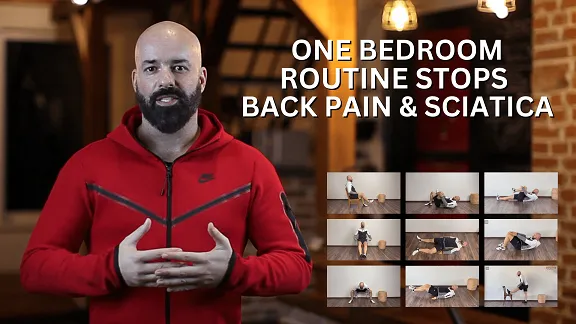In order to maintain optimum mental well-being, it’s crucial to establish a strong mental health routine. By incorporating specific habits into your daily life, you can effectively nurture your emotional resilience and promote a positive mindset. This article delves into the key strategies for building a solid mental health routine that will empower you to tackle life’s challenges head-on and cultivate a foundation of inner strength and wellness.
Establish a Daily Routine
Having a daily routine is essential for maintaining good mental health. It provides structure and stability, helping you feel grounded and in control. One of the first steps in building a strong mental health routine is to set regular sleep and wake times. Aim for consistency by going to bed and waking up at the same time every day, even on weekends. This helps regulate your body’s internal clock and improves the quality of your sleep. Adequate sleep is crucial for cognitive functioning and emotional well-being.
Incorporating physical exercise into your daily routine is another important aspect of a strong mental health routine. Exercise has numerous benefits for mental health, including reducing symptoms of depression and anxiety, boosting mood, and improving overall cognitive function. Find an exercise or physical activity that you enjoy, whether it’s going for a run, joining a dance class, or practicing yoga. Aim for at least 30 minutes of exercise most days of the week.
Practicing mindfulness and meditation can also greatly contribute to a strong mental health routine. Mindfulness involves focusing your attention on the present moment and accepting it without judgment. This can help reduce stress, anxiety, and rumination. You can incorporate mindfulness into your daily routine by setting aside a few minutes each day for a mindfulness practice, such as deep breathing, body scans, or guided meditation. There are plenty of apps and online resources available to help you get started.
Prioritize Self-Care
Taking care of yourself is crucial for maintaining good mental health. Allocating time for relaxation is an important part of a strong mental health routine. Schedule breaks throughout the day to rest and recharge. This could be as simple as taking a short walk, practicing deep breathing exercises, or enjoying a cup of tea. Giving yourself permission to take breaks can help prevent burnout and improve your overall well-being.
Engaging in activities that bring you joy is another important aspect of self-care. Make sure to set aside time each day or week for activities that you truly enjoy. This could be reading a book, listening to music, painting, or spending time with loved ones. It’s important to prioritize activities that bring you happiness and fulfillment.
Nurturing relationships is also an integral part of self-care. Building and maintaining strong connections with others can provide support, a sense of belonging, and emotional well-being. Take the time to reach out to friends or family members, have meaningful conversations, and actively listen to others. Surrounding yourself with positive and supportive people can greatly contribute to your mental health.
Manage Stress Effectively
Stress is an inevitable part of life, but managing it effectively can significantly impact your mental health. Identifying stressors in your life is an important step in managing stress. Reflect on the events or situations that trigger stress for you. Once identified, focus on finding healthy ways to address and cope with these stressors. This could involve making changes to your environment, setting boundaries, or seeking professional guidance.
Practicing stress-reduction techniques is another effective way to manage stress. These techniques can help you relax and decrease the physical and emotional toll that stress can have on your body and mind. Some popular stress-reduction techniques include deep breathing exercises, progressive muscle relaxation, and mindfulness meditation. Find what works best for you and incorporate these techniques into your daily routine.
Seeking support from others is also crucial in managing stress and building a strong mental health routine. Reach out to trusted friends, family members, or professionals who can provide guidance and a listening ear. Sometimes, talking about your stressors and concerns can bring clarity and help you find effective solutions.
Promote Healthy Eating Habits
A healthy diet plays a significant role in both physical and mental health. It’s important to consume balanced, nutrient-rich meals to nourish your body and mind. Include a variety of fruits, vegetables, whole grains, lean proteins, and healthy fats in your diet. These foods provide essential vitamins, minerals, and antioxidants that support brain function and promote overall well-being.
Staying hydrated throughout the day is also crucial for optimal mental health. Dehydration can impact cognitive function and mood. Aim to drink at least 8 cups (64 ounces) of water each day. You can also incorporate herbal teas, infused water, or low-sugar beverages for variety. Avoid excessive consumption of sugary drinks and limit your intake of stimulants like caffeine and alcohol, as they can have negative effects on your mental health.
Get Sufficient Sleep
Quality sleep is essential for maintaining good mental health. Creating a restful sleep environment is key to improving your sleep quality. Make sure your bedroom is dark, quiet, and at a comfortable temperature. Consider using blackout curtains, earplugs, or a white noise machine to block out any disturbances. Investing in a comfortable mattress, pillows, and bedding can also contribute to better sleep.
Establishing a bedtime routine can help signal to your body and mind that it’s time to wind down and prepare for sleep. This routine can include activities such as taking a warm bath, reading a book, practicing relaxation techniques, or listening to calming music. Consistency is important, so try to go to bed and wake up at the same time every day, even on weekends.
Avoiding electronics before bed is vital for a good night’s sleep. The blue light emitted by electronic devices can interfere with your body’s production of melatonin, a hormone that regulates sleep. Make it a habit to turn off screens at least one hour before bed. Instead, engage in calming activities such as reading a book or practicing relaxation techniques.
Engage in Regular Physical Activity
Regular physical activity is not only important for physical health but also for mental well-being. Choose activities that you enjoy and that make you feel good. This could be going for a walk, dancing, cycling, swimming, or any other form of exercise that gets your body moving. Finding an activity that you enjoy increases the likelihood that you will stick with it in the long run.
Setting achievable fitness goals can help you stay motivated and make exercise a consistent part of your routine. Start small and gradually increase the intensity or duration of your workouts. Celebrate your achievements along the way, no matter how small they may seem. Setting realistic goals reduces the risk of burnout and frustration.
Including both cardio and strength training in your exercise routine is important for overall health. Cardiovascular exercises, such as jogging or cycling, improve heart health and increase endorphin production, which can boost mood. Strength training exercises, such as lifting weights or doing bodyweight exercises, help build muscle and improve bone density, enhancing overall physical well-being.
Practice Mindfulness and Meditation
Practicing mindfulness and meditation can have numerous benefits for mental health. Taking the time to focus on your breath and observe your thoughts and sensations can help reduce stress, improve concentration, and increase self-awareness. Incorporate mindfulness into your daily routine by setting aside a few minutes each day for breathwork, body scans, or guided meditation.
There are plenty of resources available to help you practice mindfulness and meditation. Guided meditation apps or videos can provide structure and guidance if you’re new to these practices. They offer a variety of meditation themes and durations, allowing you to choose what best suits your needs. Additionally, joining a mindfulness group or class can provide a supportive community and opportunities for learning and growth.
Allocate Time for Relaxation
In today’s busy world, it’s important to intentionally schedule breaks throughout the day to relax and recharge. Take short breaks during work or study sessions to stretch, take a few deep breaths, or simply close your eyes and relax for a few moments. These small breaks can help reduce stress and improve focus and productivity.
Exploring different relaxation techniques can also contribute to a strong mental health routine. Find what works best for you, whether it’s practicing deep breathing exercises, progressive muscle relaxation, or indulging in a hot bath. Experiment with different techniques and discover what helps you feel most relaxed and rejuvenated.
Creating a calming environment can greatly enhance your relaxation time. Consider decorating your space with soothing colors, incorporating natural elements like plants or candles, or playing soft music or sounds of nature. Minimize distractions and clutter in your environment to promote a sense of calm.
Engage in Activities That Bring Joy
Engaging in activities that bring you joy is a vital component of a strong mental health routine. Take the time to discover or revisit hobbies and interests that make you happy. Whether it’s painting, playing a musical instrument, gardening, or cooking, these activities can provide a sense of accomplishment, relaxation, and creative expression.
Spending time in nature is another way to bring joy into your life and improve your mental well-being. Take walks in the park, hike in the mountains, or simply sit in a garden and soak up the beauty of nature. Being surrounded by greenery and fresh air has been shown to reduce stress, improve mood, and enhance overall well-being.
Cultivating gratitude is also important for building a strong mental health routine. Take the time to reflect on the things you are grateful for in your life, whether it’s a loving family, good health, or the beauty of nature. Incorporate gratitude practices into your daily routine, such as writing in a gratitude journal or expressing gratitude to others. Focusing on the positives can significantly improve your outlook and overall happiness.
Read a Book Instead
In today’s digital age, it’s easy to get caught up in the constant stream of information and technology. Instead of spending your free time scrolling through social media or watching TV, consider reading a book instead. Reading can provide a welcome break from screens and allow you to immerse yourself in another world.
Choose fiction or nonfiction books that pique your interest. Fiction can transport you to imaginary worlds, invoke emotions, and help you relax and unwind. Nonfiction books can provide knowledge, insights, and fresh perspectives on a variety of topics. Explore different genres and authors to discover what resonates with you.
Joining book clubs or participating in reading challenges can add a social element to your reading routine. It allows you to connect with others who share similar interests and engage in insightful discussions. Reading can be a fulfilling and enriching activity, giving you a break from everyday stresses and sparking your imagination.
Building a strong mental health routine is essential for overall well-being. By establishing a daily routine, prioritizing self-care, managing stress, promoting healthy eating habits, getting sufficient sleep, engaging in regular physical activity, practicing mindfulness and meditation, allocating time for relaxation, engaging in joyful activities, and reading a book instead of relying on screens, you can create a well-rounded routine that promotes mental health and happiness in your life. Remember, taking care of your mental health is just as important as taking care of your physical health. Start implementing these strategies today to build a strong foundation for your mental well-being.








